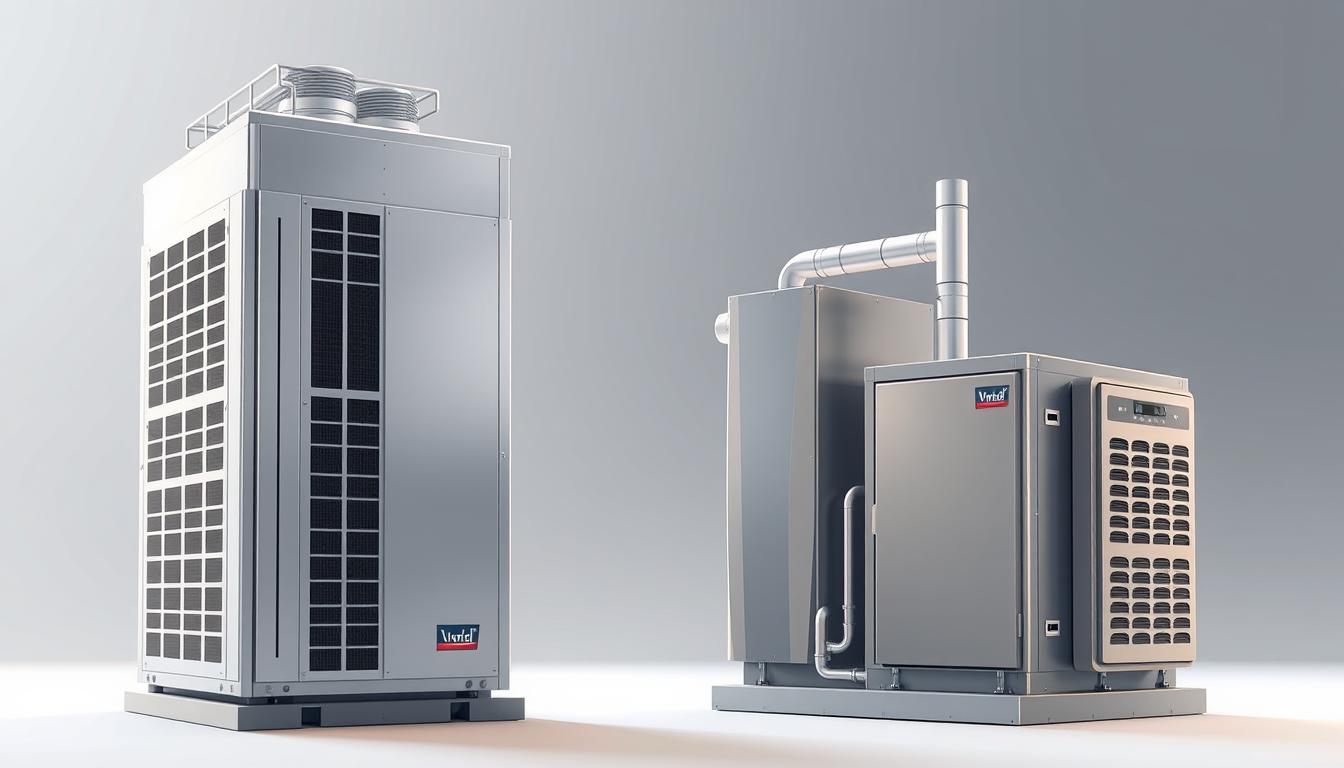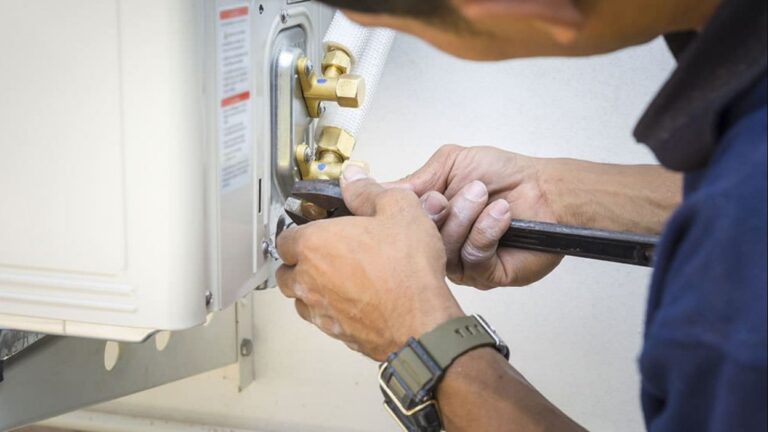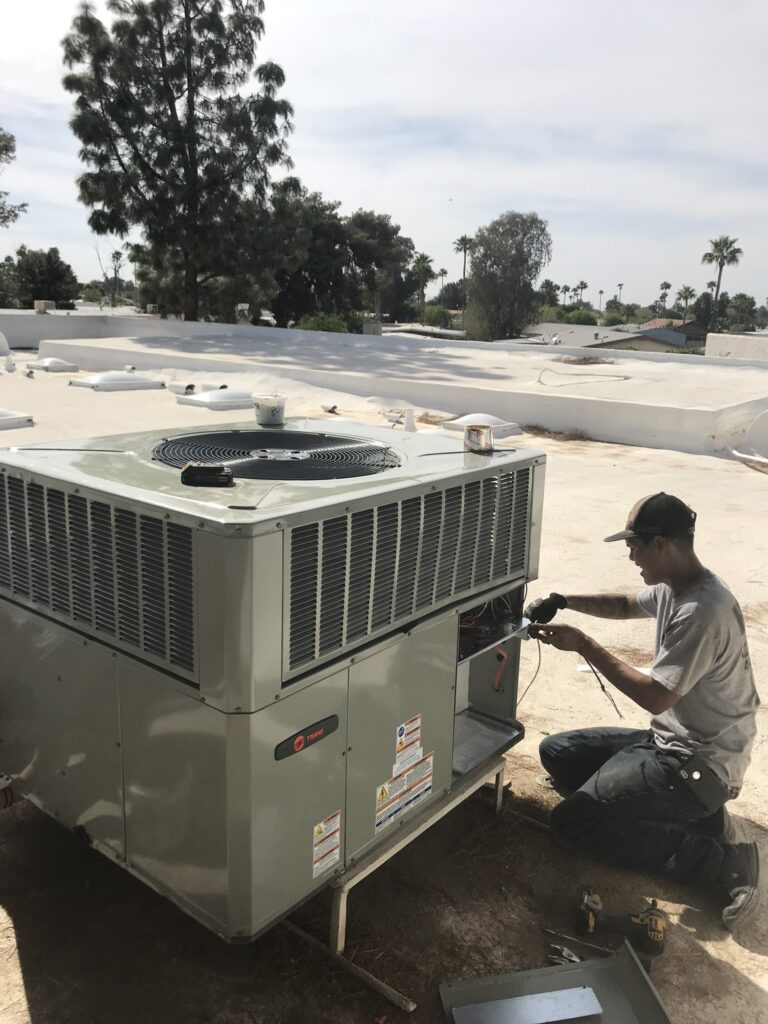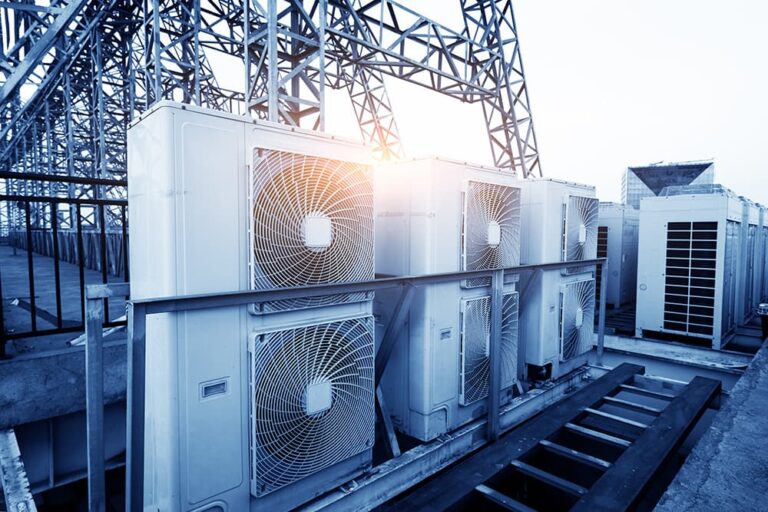Commercial HVAC vs Residential: Key Differences Explained
Understanding the differences between commercial and residential HVAC systems is key. This is true for heating, ventilation, and air conditioning.
Residential HVAC systems are made for single-family homes and small buildings. On the other hand, commercial HVAC systems are for bigger buildings. They are more complex.
Deciding on the right HVAC system depends on your building’s needs. This article will cover the main differences. It aims to help you choose wisely.
Understanding the Basics of HVAC Systems
To understand the differences between commercial and residential HVAC systems, knowing the basics is key. HVAC stands for Heating, Ventilation, and Air Conditioning. It’s used to control temperature, humidity, and air quality in buildings.
What is HVAC?
HVAC systems make indoor spaces comfortable and healthy. They are essential for both homes and businesses. HVAC refers to systems, equipment, and technologies for heating, ventilating, and cooling buildings.
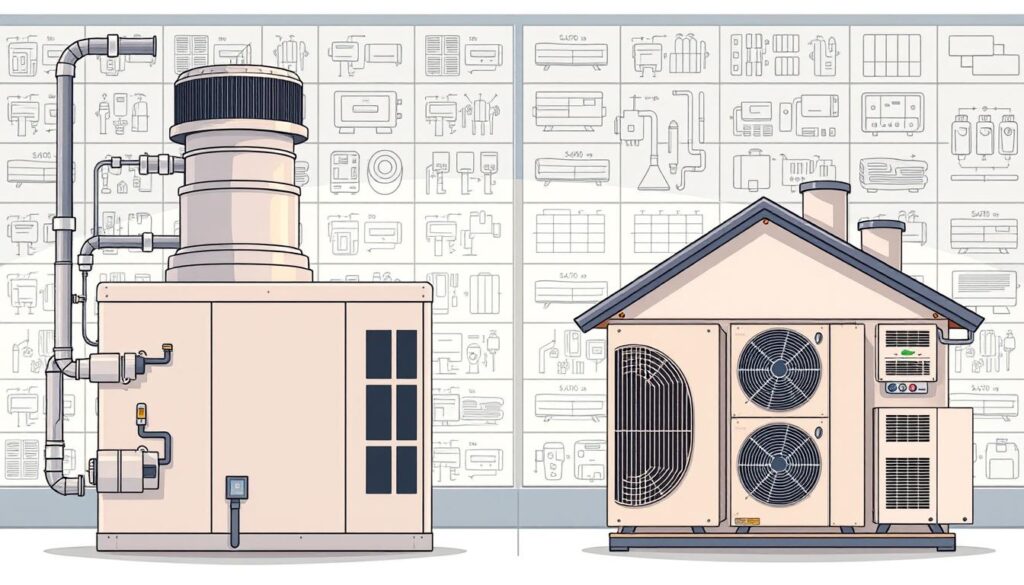
The Importance of HVAC in Homes and Businesses
In homes, HVAC systems keep living areas comfortable and air quality good. They improve well-being. In commercial settings, HVAC is even more critical. It handles larger spaces and more people, needing stronger systems.
Key Components of Commercial HVAC Systems
Knowing the parts of commercial HVAC systems is key for businesses. They need to handle the big needs of large buildings. This is different from home systems.
Advanced Equipment Used
Commercial HVAC systems use top-notch gear like VRF systems and ERVs. They also have smart control systems. These help control temperature and save energy, which is important for businesses.
VRF systems let you heat and cool different parts of a building at once. This saves energy. ERVs make the air inside better by using energy from air that’s thrown out.
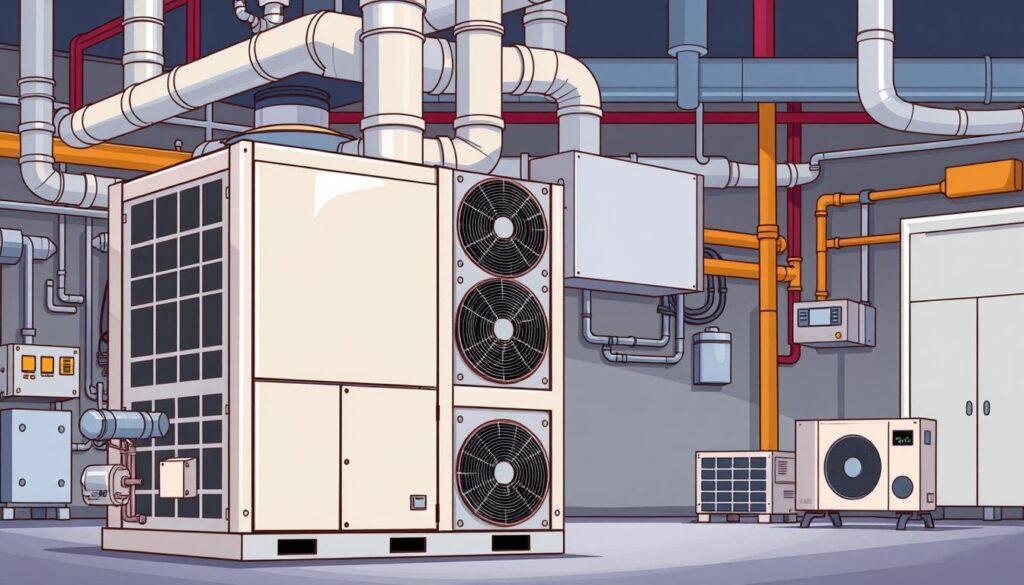
Zoning and Control Systems
Zoning and control systems are key in commercial HVAC. They let managers control the temperature and air quality in different areas. This makes the place more comfortable and saves energy.
“Advanced control systems can significantly reduce energy consumption by ensuring that HVAC equipment operates only when needed and at optimal levels.” –
- Enhanced energy efficiency
- Improved indoor air quality
- Customizable comfort levels for different zones
Higher Capacity Requirements
Commercial buildings need HVAC systems that can handle more space and people. This means bigger equipment and more complex designs.
| System Component | Commercial HVAC | Residential HVAC |
|---|---|---|
| Capacity | Higher (often over 5 tons) | Lower (typically under 5 tons) |
| Complexity | More complex with zoning and advanced controls | Less complex, simpler controls |
| Equipment Type | VRF systems, ERVs, rooftop units | Split systems, furnaces, air conditioners |
By knowing these parts, businesses can choose and care for their HVAC systems wisely. This saves money and makes the place more comfortable.
Key Components of Residential HVAC Systems
Residential HVAC systems have key parts that work together. They help keep homes warm in winter and cool in summer.
These systems are made for single-family homes and small buildings. They usually have a furnace or heat pump, an air conditioner, and a thermostat.
Equipment Types for Homes
There are different types of equipment for heating and cooling homes. The most common are:
- Furnaces: Gas, oil, or electric furnaces are used for heating.
- Heat Pumps: These devices can provide both heating and cooling.
- Air Conditioning Systems: These are used for cooling and can be part of a split system or a packaged unit.
The choice of equipment depends on many things. These include the climate, energy efficiency needs, and the home’s specific needs.
Efficiency Ratings and Specifications
Knowing the efficiency ratings of HVAC systems is important for homeowners. Key ratings include:
| Rating | Description | Importance |
|---|---|---|
| SEER | Seasonal Energy Efficiency Ratio | Measures cooling efficiency |
| AFUE | Annual Fuel Utilization Efficiency | Measures heating efficiency for furnaces |
| HSPF | Heating Seasonal Performance Factor | Measures heating efficiency for heat pumps |
These ratings help homeowners see how energy-efficient their HVAC system is. They help make smart choices about heating and cooling.
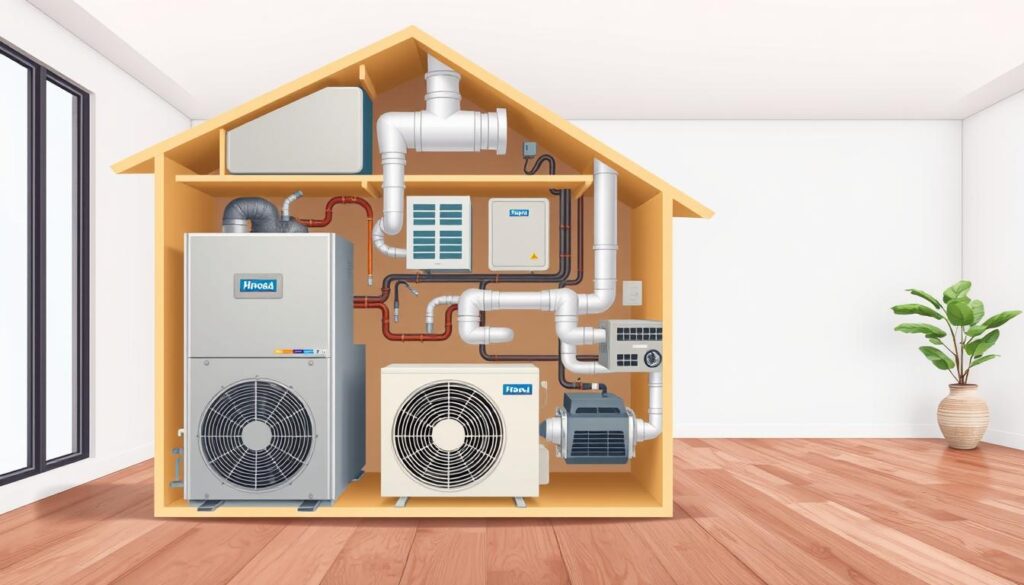
When picking a residential HVAC system, think about the efficiency ratings and specifications. This ensures the system meets your needs and saves energy.
Comparing Efficiency and Cost
Understanding the differences in efficiency and cost between commercial and residential HVAC systems is key. This knowledge helps you make better choices.
The efficiency of an HVAC system affects both the environment and your bills. Commercial and residential systems have different focuses. This impacts their efficiency and cost.
Energy Efficiency in Commercial HVAC
Commercial HVAC systems are built to save a lot of energy. They use variable refrigerant flow and energy recovery ventilators. These technologies help save a lot of energy, which is important in big buildings.
- Variable refrigerant flow systems control cooling and heating precisely. They adjust refrigerant flow to different parts of the building.
- Energy recovery ventilators reduce the energy needed to heat or cool fresh air. They do this by transferring heat from exhaust air.
Operational Costs for Residential Systems
Residential HVAC systems also aim to save energy. They have programmable thermostats and energy-efficient equipment. They help homeowners save money on energy bills.
The cost of running residential HVAC systems depends on several things. These include the system’s efficiency rating, the home’s insulation, and how well it’s used.
- Keeping your residential HVAC system well-maintained is important. It helps it work at its best.
- Getting a newer, more efficient system can also save you money on energy bills.
Return on Investment Considerations
When deciding between commercial and residential HVAC systems, think about the return on investment (ROI). Commercial systems might cost more upfront. But they save a lot of energy and last longer, saving money in the long run.
For residential systems, the ROI depends on energy efficiency. Systems with higher SEER ratings cost less to run over time.
| System Type | Initial Cost | Operational Cost | ROI |
|---|---|---|---|
| Commercial HVAC | Higher | Lower (long-term) | Significant |
| Residential HVAC | Lower | Varies | Moderate to High |
Choosing the Right System for Your Needs
Choosing the right HVAC system depends on several factors. These include the size and type of building, your heating and cooling needs, and your budget. It’s important to know the differences between commercial and residential HVAC systems to make a good choice.
Factors to Consider
When choosing between commercial and residential HVAC systems, think about your building’s needs. Commercial systems are made for bigger spaces and need more power. Residential systems are better for smaller homes.
Maintenance and Installation
Keeping your HVAC system in good shape is key. Regular checks can stop expensive repairs and make your system work better. It’s best to have a pro install it to make sure it works right.
By looking at these points and understanding the differences, you can pick the best system for your space. This way, you’ll have a comfortable and healthy indoor area.

